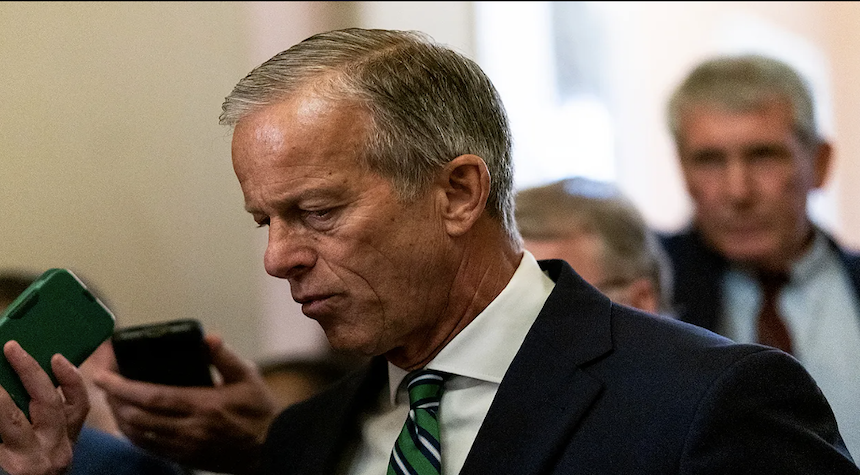The Senate on Friday rejected two opposing measures designed to fund federal agencies for a brief period into the new budget year, which starts on October 1. This development follows earlier reports that a partial government shutdown might occur on this date if no agreement is reached.
Leaders from both the Republican and Democratic parties were quick to point fingers at each other for the deadlock. Democrats accused Republicans of failing to negotiate on their health care priorities as part of the funding measure, knowing full well that some Democratic votes would be needed to get a bill to the president. Meanwhile, the Republicans claimed that Democrats’ demands would significantly escalate spending and were not relevant to the immediate issue of keeping agencies operational for a short period while a full-year spending agreement is negotiated.
The Republican proposal is a clean, short-term resolution to continue government funding, aiming to buy time for the complete appropriations process. On the other side of the aisle, the Democrat bill seeks to extend health insurance subsidies set to expire by year’s end and reverse Medicaid cuts introduced in the Republicans’ previous tax breaks and spending cuts bill.

Senate Majority Leader John Thune, a Republican from South Dakota, stated before the votes, “The Republican bill is a clean, nonpartisan, short-term continuing resolution… And the Democrat bill is the exact opposite.” On his part, Senate Democratic Leader Chuck Schumer of New York expressed confidence that the public sentiment would favor the Democrats.
Earlier in the day, the House of Representatives had passed the Republican-led funding bill. This measure aims to extend government funding at current levels for seven weeks, with an additional $88 million allocated for security for lawmakers, Supreme Court members, and the executive branch. The bill passed with a vote of 217-212, with Rep. Jared Golden of Maine being the lone Democrat member to support it.
The Senate quickly took up both measures, but neither garnered the 60 votes necessary for passage. This raises important questions about the path forward with the shutdown deadline looming. Senators might leave town until September 29, just one day before the shutdown deadline, due to a scheduled recess for Rosh Hashana, the Jewish New Year. Meanwhile, House Republicans are contemplating whether to remain in their home districts through September, essentially compelling the Senate to approve the House-passed measure or risk a shutdown.
Democrats are keen to demonstrate their commitment to reducing healthcare costs for Americans, while Republicans bank on their proposed clean, short-term funding measure. Yet the main issue remains: unless Congress acts, tax credits for low- and middle-income people buying health insurance through the Affordable Care Act will expire, resulting in a steep increase in premiums for millions of Americans.
You May Also Like: Crisis Delayed? House Moves to Stop Shutdown, Senate Pushback Threatens
As we look forward to further developments, the importance of staying informed cannot be overstated. This is a story about the democratic processes at work, about the need for negotiation and compromise, and ultimately about the right of the American public to a fully functioning government.

